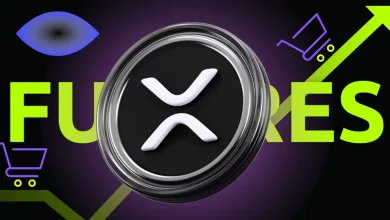The SEC is suing Kraken for operating as an unregistered securities exchange.
Experts are concerned that the SEC is not understanding how cryptocurrency exchanges work.
The SEC's actions could push crypto businesses to friendlier shores and hurt the U.S.'s position as a tech innovation leader.
In the ongoing showdown between the United States Securities and Exchange Commission (SEC) and Kraken, a major cryptocurrency exchange, the regulatory body seems stuck in a familiar loop of challenges. As we dive into the legal drama, it becomes clear that this struggle isn’t just a replay of past failures but a sign of deeper issues within the regulatory world.
A Recap of Regulatory Mix-ups
The lawsuit, filed in November, claims Kraken operated as an unregistered securities exchange, echoing the SEC’s past struggles in the crypto realm. This legal clash bears a resemblance to the SEC’s previous run-ins with Coinbase, showing a pattern of assertive regulation that misses the quirks of the cryptocurrency universe.
Both cases revolve around accusations of unregistered securities exchanges, highlighting a basic misunderstanding of how cryptocurrency exchanges work. Unlike traditional stock markets, Kraken and similar platforms deal with a mix of digital assets that don’t fit neatly into existing regulatory boxes.
This mislabeling reveals the SEC’s lack of understanding about cryptocurrencies, which operate as decentralized entities with features akin to utility or currency.
Also Read: SEC Accused of Hypocrisy and Favoritism in Crypto Crackdowns
The Tech Neutrality Puzzle
Experts are concerned about the SEC’s missing commitment to technological neutrality. This principle, pushing for equal application of rules to all technologies, seems to be forgotten. By squeezing cryptocurrencies into traditional regulatory molds, the SEC not only misuses laws but also shows bias against digital assets, accidentally slowing down innovation.
Warning Bells Are Ringing!
The SEC’s tough stance might push crypto businesses to friendlier shores, a phenomenon called regulatory arbitrage. This potential exodus poses a risk to the U.S.’s position as a tech innovation leader.
Maybe, the Kraken case is déjà vu from the SEC’s actions against Coinbase, signaling a loop of assertive and misinformed regulation. This not only ends up being pointless but also hurts the SEC’s credibility, suggesting a focus on flexing regulatory muscle rather than adapting to new tech realities.
Read More: Did the SEC Mislead the Court in DEBT Box Lawsuit? Judge Issues Warning
A Look at the Bigger Picture
Beyond the legal battle, the Kraken case puts a spotlight on bigger problems in how the U.S. regulates cryptocurrencies. Experts urge the SEC to ditch old tactics and connect with the crypto industry in a smart and helpful way.
Regulation is vital, but it has to be sensible, well-informed, and crafted to boost innovation, not smother it. Now, it’s up to the SEC to show it can keep up with the ever-changing world of cryptocurrencies.







